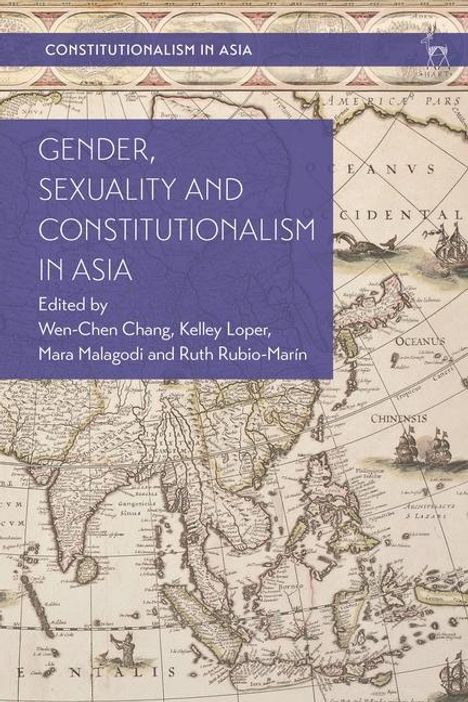Gender, Sexuality and Constitutionalism in Asia, Kartoniert / Broschiert
Gender, Sexuality and Constitutionalism in Asia
(soweit verfügbar beim Lieferanten)
- Herausgeber:
- Wen-Chen Chang, Kelley Loper, Mara Malagodi
- Verlag:
- Hart Publishing, 06/2025
- Einband:
- Kartoniert / Broschiert
- Sprache:
- Englisch
- ISBN-13:
- 9781509972302
- Artikelnummer:
- 11915527
- Umfang:
- 384 Seiten
- Gewicht:
- 454 g
- Maße:
- 234 x 156 mm
- Stärke:
- 25 mm
- Erscheinungstermin:
- 26.6.2025
- Hinweis
-
Achtung: Artikel ist nicht in deutscher Sprache!
Klappentext
This book analyses the equal citizenship claims of women and sexual and gender diverse people across several Asian jurisdictions. The volume examines the rich diversity of constitutional responses to sex, gender and sexuality in the region from a comparative perspective. Leading comparative constitutional law scholars identify 'opportunity structures' to explain the uneven advancement of gender equality through constitutional litigation and consider a combination of variables which shape the diverging trajectories of the jurisdictions in this study.
The authors also embed the relevant constitutional and legal developments in their historical, political and social contexts. This deep contextual understanding of the relationship between sex, gender, sexuality and constitutionalism greatly enriches the analysis. The case studies reflect a variety of constitutional structures, institutional designs and contextual dynamics which may advance or impede developments with respect to sex, gender and sexuality. As a whole, the chapters further an understanding of the constitutional domain as a fruitful site for advancing gender equality and the rights of sexual and gender diverse people.
The jurisdictions covered represent all Asian sub-regions including: East Asia (Japan, Taiwan, Hong Kong and South Korea), South East Asia (Malaysia, Singapore, Philippines and Indonesia), and South Asia (India, Nepal, Pakistan and Sri Lanka). The introductory framework chapter situates these insights from the region within the broader global context of the evolution of gender constitutionalism.

